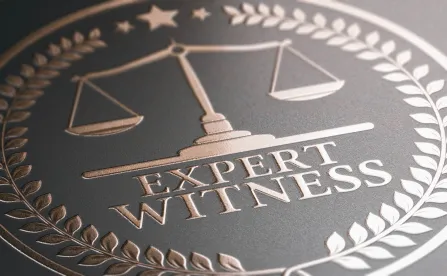In the realm of civil litigation, the involvement of “experts” can make or break a case. An expert is a qualified individual with specialized knowledge, skill, training, education, or experience in a particular field relevant to the issues at hand in the case. These experts are called upon to provide their professional opinions, analyses, or interpretations on complex or technical matters that are beyond the understanding of the average person or the typical juror.
Experts can play a significant role in helping parties to prove their case or defend against a claim by presenting objective and credible evidence and testimony. They are typically engaged by one or both parties involved in the litigation to provide expert witness services, which involve expressing their professional opinions based on their expertise and relevant data or facts. These knowledgeable individuals hold the ability to provide crucial testimony on a wide range of subjects, such as determining the standard of care in a specific field, identifying the cause of an injury, assessing the extent of damages, and beyond.
In New Jersey, the qualification of experts for providing trial testimony is a fundamental requirement. To be eligible, an expert must generally possess the necessary knowledge, skill, experience, training, or education pertinent to the matter under consideration. Additionally, they must be capable of articulating their findings in a clear and understandable manner and be prepared to withstand cross-examination.
The admissibility of expert testimony in New Jersey is governed, in part, by Rule 702 of the New Jersey Rules of Evidence, which provides that expert testimony is admissible if it aids the trier of fact in understanding the evidence or determining a fact in question. Once admitted, the jury has the liberty to weigh the testimony as they see fit.
An effective testifying expert possesses several key attributes. First and foremost, they should have extensive knowledge and experience directly related to the subject matter at hand. Furthermore, these experts must possess exceptional communication skills to effectively convey complex technical concepts to the jury in a way that is easily comprehensible. Equally important is the expert’s credibility and ability to maintain a professional demeanor, particularly when subjected to cross-examination.
Selecting the right expert is a critical decision. Factors to consider during the selection process include the expert’s knowledge and experience in their relevant field, their communication skills, their experience testifying at deposition and trial, credibility, objectivity, and, of course, their fees. Thorough research is essential, involving conversations with other lawyers who have utilized experts in the past and gathering references from the expert in question. An in-person meeting is also advisable to assess if the expert is a suitable fit for the specific case.
In connection with a community association’s transition litigation, a community association will likely require the assistance of various experts to address complex issues and ensure a fair and successful resolution. Transition litigation typically occurs when the developer of a community transfers control of the association to the homeowners. This process can lead to disputes and legal challenges, necessitating the involvement of experts with specific knowledge and expertise. Here are some types of experts a community association may need during transition litigation:
Construction Defect Experts:
Construction defect experts are essential when the community association believes there are flaws or deficiencies in the design and/or construction of the development’s common elements or infrastructure. These experts, such as architects or engineers, can thoroughly inspect the property and provide professional assessments of any structural, design, or construction issues. Their expertise can help determine whether there are legitimate claims against the developer and assist in quantifying the necessary remediation costs by developing remediation scopes of work for the community.
Financial Experts:
Financial experts, such as forensic accountants or financial analysts, play a crucial role in transition litigation. They can conduct a comprehensive review of the association’s financial records and transactions during the developer’s control. Their analysis can identify potential financial mismanagement, irregularities, or discrepancies that might have occurred during the development phase. Financial experts’ findings can serve as crucial evidence in supporting the association’s claims and establishing the extent of damages incurred.
Reserve Study Specialists:
Reserve study specialists are responsible for conducting reserve studies, which assess the community’s long-term capital needs and funding requirements. During transition litigation, these experts can evaluate the adequacy of the reserves established by the developer and compare them to the actual costs needed for future repairs and replacements. Their assessment helps the association ascertain whether the developer adequately funded the reserves and whether adjustments are necessary to address potential shortfalls.
Land-Use and Zoning Consultants:
In some cases, land-use and zoning consultants may be required if there are disputes over the developer’s compliance with zoning regulations. These experts can evaluate whether the development adhered to all applicable land-use regulations and whether the community’s buildings and amenities are appropriately zoned. Their assessments can be critical in determining the developer’s adherence to the approved plans and identifying potential violations.
These professionals can provide valuable insights, evidence, and support to the association’s case, ensuring that the association’s interests are well-represented and ultimately contributing to a fair and successful resolution of the litigation. To ensure a successful outcome, it is essential to choose qualified, credible, and objective experts who can effectively communicate their findings to the court and jury. In selecting experts, it is critical for community associations to work with their attorney to select the right expert(s) for their transition litigation. Attorneys can assess the legal issues involved and determine the most suitable experts to bolster the association’s claims or defenses.
In navigating the intricate landscape of community association transition litigation and the critical task of selecting the right experts, Stark & Stark stands ready to provide invaluable legal counsel and expertise. With our experienced team of attorneys well-versed in community association law and extensive knowledge in identifying and engaging the most qualified experts, we are committed to ensuring a successful resolution of your case. By entrusting your legal matters and expert selection to Stark & Stark, you can confidently proceed with your community association’s transition litigation, knowing that you have a dedicated and capable partner by your side.



 />i
/>i
